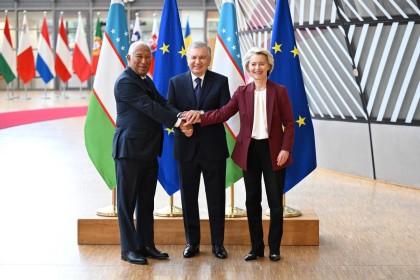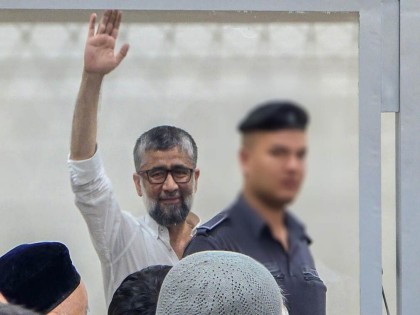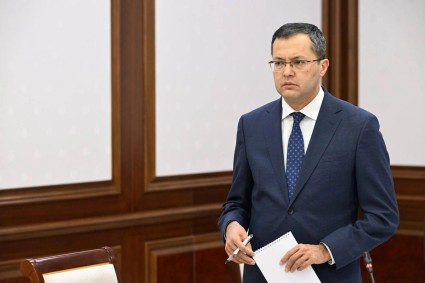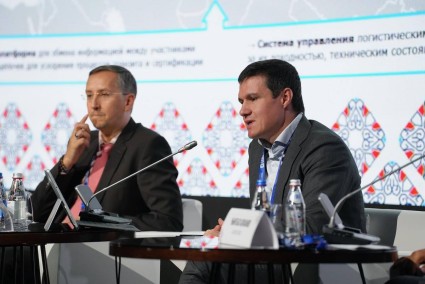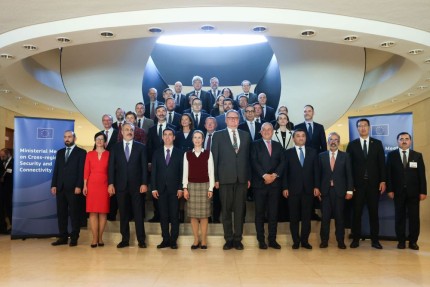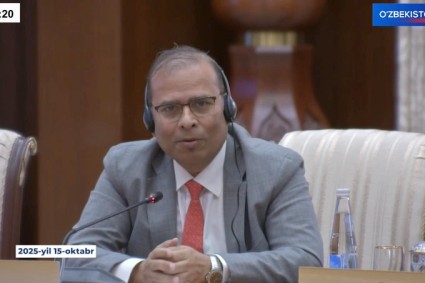On April 10, 2017, the President Shavkat Mirziyoyev signed a decree "On measures to fundamentally raise the efficiency of the internal affairs bodies (police), to strengthen their responsibility for ensuring public order, protection of civil rights, freedoms and interests."
As Akhborot program of the "Uzbekistan" TV channel reported, the document has approved the Program of comprehensive measures for fundamental reforming of the system of internal affairs bodies and a special commission, headed by Interior Minister Abdusalom Azizov, has been formed for its implementation.
The decree severely criticizes "the serious shortcomings and problems that have accumulated in recent years in the activities of internal affairs bodies" that "hinder the effective implementation" of the tasks assigned to them.
Firstly, "the lack of a clear designation of the main tasks and functions between the units of national, middle and lower levels makes it difficult to determine the priorities of the activities and personal responsibility of each employee for end results of their work."
Secondly, the existing organizational-staff structures "do not ensure the rational use of staff and means, and which in result leads to excessive workload on lower level units," whereas in some services of the central and middle level there are "excessive staff units without sufficient workload" .
Thirdly, officials of internal affairs bodies, including inspectors for preventive measures, "do not conduct dialogue with the ordinary people," "the culture of communication with the people remains at a low level," there is no effective interaction with local self-governing bodies and other institutions of civil society in resolving pressing problems of the people.
Fourthly, the appeals of individuals and legal entities are considered superficially, "there is no thorough comprehensive analysis of the issues raised in them," "formality approach (red tape) to appeals give rise to people's discontent, force them to complain to the Presidential Virtual reception and other instances," the Presidential Decree says.
Fifthly, there is no effective reporting system of officials of internal affairs bodies before the population, effective mechanisms of public, parliamentary and deputy control over their activities have not been introduced, which "hinder to the raising of the responsibility of employees for effective fulfillment of assigned tasks".
Sixthly, crime preventive measures are reduced to "combating the effects (consequences) of committed crimes," "systemic effective measures are not being taken to prevent delinquency, to identify and eliminate the causes and conditions for their committing, with lack of in-depth analysis."
Seventhly, "the due attention is not paid to protecting the youth from destructive ideas, to preventing their involvement in criminal activities, primarily the terrorism and religious extremism, the educational role of the internal affairs bodies remains insignificant."
Eighthly, the system of training, retraining and skills enhancing of employees of law enforcement bodies does not meet the requirements, "there are facts of bribery and abuse of powers."
Ninthly, the degree of use of the latest ICTs and equippedness with modern tools is low.
Ways of reforming the system of internal affairs bodies
The decree has defined the most important areas for reforming the system of internal affairs bodies that are in line with the goals set out in Uzbekistan's Development Strategy for 2017-2021 and are aimed at radically increasing the efficiency of the internal affairs bodies, as well as ensuring reliable protection of civil rights, freedoms and interests.
The first goal is the transformation of the internal affairs bodies into a "socially oriented professional service", whose activities should be aimed at "providing timely and quality assistance to the population, unconditional fulfillment by each employee of his duty which is "To serve the interests of the people".
The tasks and functions of the subdivisions of the internal affairs bodies of all levels should be clearly defined and delineated, the organizational-staff structure should be optimized, and the forces and means must be "rationally distributed" taking into account modern challenges and threats, the significance and scope of the work load. "
It is planned to ensure a systemic targeted dialogue with the people, develop close cooperation with local self-government bodies and other civil society institutions, and provide comprehensive assistance in solving vital social problems.
The internal affairs bodies should establish "a qualitatively new procedure for organizing work with appeals (letters)", ruling out superficial and formal attitude to their consideration and resolution, and also using within their powers "all means to protect the civil rights and interests."
The system of accountability of the officials of the internal affairs bodies before the population, clear criteria for assessing their work, as well as effective mechanisms for public, parliamentary and deputy control over the legality of their activities will be introduced.
Another priority will be to ensure early prevention of offenses, first of all by "timely eliminating the causes and conditions for their committing", raising the legal culture of all segments of the population, inculcating respect for law and intolerance towards any manifestations of violations of the law.
It is planned to develop a system of work with minors and youth aimed at "educating them in the spirit of love for the Motherland, patriotism, respect for national and universal values, protecting the youth from the ideas of terrorism, religious extremism, violence and cruelty."
The system of training, retraining and raising the professional skill of employees of law enforcement bodies will be fundamentally reviewed and improved, with "the eradication of the causes and conditions conducive to committing of offenses".
It is planned to widely implement modern ICTs aimed at increasing the efficiency of all divisions of the internal affairs bodies.
In addition, the material and technical support of the activities of the internal affairs bodies will be improved, "decent conditions for effective work" shall be created, which will be provided with service housing.
Starting from October 1, 2017, the order of hearing by the Senate twice a year of the report of the Interior Minister of Uzbekistan on the state of prevention of offenses shall be introduced.
Zhokargy Kenes (Parliament) of Karakalpakstan, councils of People's Deputies of Tashkent city and the provinces will hear quarterly reports of the Interior Minister of Karakalpakstan, the chiefs of Interior departments of Tashkent city and the provinces. District and city councils will every quarter hear reports from the heads of district and city police departments and internal affairs departments.

